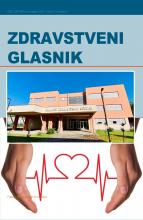KNOWLEDGE AND ATTITUDE ON PREVENTION OF NOSOCOMIAL INFECTIONS OF STUDENTS OF UNIVERSITY OF MOSTAR FACULTY OF HEALTH STUDIES
Ključne riječi:
nosomical infections, hospital-acquired infection, knowledge, attitude and practiceSažetak
Introduction: Nosocomial infections are a global problem in the health care system, but they more affect low- and middle-income countries. Educating healthcare professionals about nosocomial infections and prevention strategies to have a significant impact on reducing the number of infections. Aim: To determine and compare students' knowledge and attitudes about nosocomial infections and prevention strategies at the Faculty of Nursing and Sanitary Engineering from the Faculty of Health Studies and the School of Medicine. Method: This is a cross-sectional study. The sample consisted of 150 students of third and fourth academic years, both sexes, from the Department of Nursing (n = 50), Department of Sanitary Engineering (n = 50) of Faculty of Health Studies and the School of Medicine (n = 50). The survey was conducted using a self-designed survey questionnaire, divided into three sections: knowledge of nosocomial infections, knowledge of hand hygiene, beliefs, and attitudes about the effect of education on nosocomial infections. Each unit had 5 statements, and the possibility of answering with "YES" or "NO". Result: Students of all three studies showed, on average, good knowledge of the occurrence and prevention of nosocomial infections. The post-hoc comparison showed significantly higher knowledge of students from the School of Medicine and Sanitary Engineering compared to the knowledge of students from the Department of Nursing (p <0.005), but not in the hand hygiene test. In the hand hygiene test, a significant difference in overall knowledge was found between the School of Medicine and Sanitary Engineering, in favor of the School of Medicine (p = 0.037). Most students from all faculties are convinced that knowledge of nosocomial infections and adherence to prevention measures is an important strategy in their prevention. Conclusion: The knowledge of the health-oriented faculties of the University of Mostar is satisfactory. Nevertheless, many students at all faculties consider that education at faculties is insufficient.















